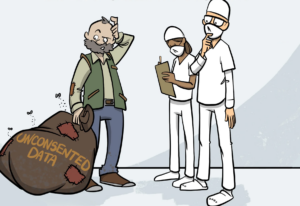“On TV & Video” is a column exploring opportunities and challenges in advanced TV and video.
Today’s column is written by Jason Trout, global chief digital officer at Peach.
During the pandemic, global streaming consumption accelerated exponentially. But expansive growth comes with expansive problems, including an unprecedented volume of late or failed campaigns. As Conviva’s State of Streaming Report found, advertisers continue to face high failure rates, missed opportunities and delayed video starts across the globe.
Late campaigns are nothing new. Still, few preventative measures are being taken. One possible reason? The consequences aren’t always clear. It’s time to shine a light on exactly what happens when someone misses a deadline – and why it’s so risky.
High cost, high time
If media agencies are chasing assets for a campaign that has missed its deadline, this is unproductive, low-value activity. Teams work in reactive mode with high-opportunity costs. Focus is removed from campaign optimization, leading to a cycle of repetition as attention is placed on old instead of new.
Multichannel impact
Planners want campaigns to be delivered on selected channels at set times to make powerful impacts. Delayed digital asset availability can cause a ripple effect and dilute or destroy the broader multichannel campaign. Not only will the digital ROI be reduced, but so will the compound impact on the communication flow.
Loss of niche publishers
If buyers are in a jam and need to pick up impressions quickly because of a late campaign, they may have to dial up the impression bank on larger walled gardens such as Facebook or YouTube, while dropping smaller, more niche publishers.
These bigger platforms have larger audiences, but bigger doesn’t always mean better. Smaller-scale activity with focused communities may garner more profitable engagements.
Overexposure or underexposure of ads
Best practice in advertising calls for applying frequency capping of creative executions to limit the exposure of particular copy to a customer. But increasing frequency capping to compensate for missing creative may correlate to a reduction in the prospect’s experience. Customers can get bored and frustrated with the inability to escape the same ads, which may negatively affect their experience and opinion of the brand.
Wandering eyes
If frequency capping cannot be increased to balance out a delay, it will inevitably mean the campaign will not spend its allocated budget or achieve the required reach and coverage. When a client’s budget planning period comes around, agencies may find that allocations have been reduced and redeployed to more easily controlled channels. Client’s might then ask whether another agency or even an in-house team can activate their campaigns better.
Winning bids but losing opportunities
On the buy side, programmatic teams are using combinations of buying strategies, unique data feeds and profile types to identify high-value impressions. But even if they win a bid, it may not be effectively served because of delays or technical problems with the creative.
That “bad” creative may get redirected to the media agency’s doorstep. Time and money are wasted as the creative is fixed, potentially leading to more frequency capping and reputation damage for clients.
Publishers have a stake in the matter, too. If bids are won only for them to be unfulfilled, publishers lose out on maximizing revenue and brand diversity.
The way forward
Now’s the time to act rather than do the same things and hope life gets better.
Be curious about the current workflow. Talk to the people who are doing the work day to day. Surface the pain points and map it all out. They’ll appreciate the interest and the promise of action.
Decide to do something about it. Once you’ve got the right mindset, it should rub off on those around you. You’ll probably find new data points and examples of challenges that your colleagues were embarrassed to talk about for fear it would make them look ineffective.
Choose a solution and get it on board as fast as possible. Changing habits is hard to do. Don’t delay or you will lose the power of momentum to drive adoption. No technical solution will fix all your problems, but if you put it off, then nothing gets solved.
Follow Peach (@peach_video) and AdExchanger (@adexchanger) on Twitter.















